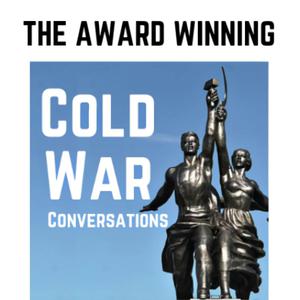
Cold War Conversations
Ian Sanders
Preserving the stories of the #ColdWar before they are lost…
- 46 minutes 48 secondsUnder Fire: A Journalist's Story of the 1989 Romanian Revolution (380)
Today we are transported back to a pivotal moment in history that occurred 35 years ago this month - the Romanian Revolution of 1989.
This episode is from our archive and features, Mark Brayne, a former Reuters and BBC journalist, who provides a gripping first-hand account of the tumultuous events that led to the fall of Nicolae Ceausescu. As Mark recounts his experiences, listeners are given a rare glimpse into the life of a journalist reporting from a war zone.
He embarks on a perilous journey to Bucharest, navigating roadblocks and dodging bullets to report on the revolution. His determination to capture the story amidst chaos and danger is a testament to the courage and resilience of journalists who risk their lives to bring us the news.
Beyond the historical events, Mark shares personal reflections on how these experiences shaped his life and career. The emotional intensity of covering such significant moments led him to a new path as a psychotherapist, helping others navigate their own traumas.
This episode is not just a recounting of history but an exploration of the human stories behind the headlines. It highlights the bravery of journalists like Mark, who venture into the unknown to bring us closer to the truth. For anyone interested in history, journalism, or the human condition, this episode is a must-listen.
Related episodes:
- Mark - A UK Journalist in the Soviet Union & GDR https://pod.fo/e/1c4ef
- Mark - A British Journalist under Stasi Surveillance https://pod.fo/e/1e111
- The Human Factor: Gorbachev, Reagan, and Thatcher, and the End of the Cold War https://pod.fo/e/17bf8
- Reporting on the 1989 Revolution in Romania and the Czechoslovak Velvet Revolution https://pod.fo/e/2544b1
Episode extras here https://coldwarconversations.com/episode380/
The fight to preserve Cold War history continues and via a simple monthly donation, you will give me the ammunition to continue to preserve Cold War history.
You’ll become part of our community, get ad-free episodes, and get a sought-after CWC coaster as a thank you and you’ll bask in the warm glow of knowing you are helping to preserve Cold War history.
Just go to https://coldwarconversations.com/donate/
If a monthly contribution is not your cup of tea, we welcome one-off donations via the same link.
Find the ideal gift for the Cold War enthusiast in your life! Just go to https://coldwarconversations.com/store/
- Follow us on BlueSky https://bsky.app/profile/coldwarpod.bsky.social
- Follow us on Threads https://www.threads.net/@coldwarconversations
- Follow us on Twitter https://twitter.com/ColdWarPod
- Facebook https://www.facebook.com/groups/coldwarpod/
- Instagram https://www.instagram.com/coldwarconversations/
- Youtube https://youtube.com/@ColdWarConversations
- Love history? Join Intohistory https://intohistory.com/coldwarpod
Learn more about your ad choices. Visit podcastchoices.com/adchoices
21 December 2024, 12:00 am - 1 hour 34 minutesFoes to Friends: Cold War British and East German Tank crew together in conversation (379)
Join our East-West tank crew reunion that offers a rare glimpse into the lives of those who served on opposite sides of the Iron Curtain. The episode features Al and Mick, former Chieftain tank crew members from the British Army, alongside Dag, an ex-East German T72 tank commander.
Together, they delve into their personal experiences, providing insights into the military strategies, challenges, and camaraderie that defined their service during the Cold War.
As the discussion unfolds, the trio explores the intricacies of military life, from the training regimes and unit cohesion to the technical specifications of their respective tanks.
Dag provides an intriguing account of the T72's capabilities, highlighting its strengths and limitations. Meanwhile, Al and Mick reflect on their experiences with the Chieftain tank, offering a Western perspective on tank warfare during the Cold War.
The episode is punctuated with personal anecdotes and reflections, adding depth and humanity to the historical narrative. Dag's candid admission of his reluctance to serve at the border and his refusal to shoot at defectors offers a poignant reminder of the moral complexities faced by those in uniform. Similarly, Al and Mick's recollections of training exercises and the camaraderie among their fellow soldiers highlight the bonds forged in service.
Related episodes:
- Crewing the Cold War Chieftain tank https://pod.fo/e/155bb4
- Cold War Chieftain tank deployment at the East German Border https://pod.fo/e/157641
- The East German Tank Commander https://pod.fo/e/210cee
Episode extras here including Dag's vehicle recognition manual https://coldwarconversations.com/episode379/
The fight to preserve Cold War history continues and via a simple monthly donation, you will give me the ammunition to continue to preserve Cold War history.
You’ll become part of our community, get ad-free episodes, and get a sought-after CWC coaster as a thank you and you’ll bask in the warm glow of knowing you are helping to preserve Cold War history.
Just go to https://coldwarconversations.com/donate/
If a monthly contribution is not your cup of tea, we welcome one-off donations via the same link.
Find the ideal gift for the Cold War enthusiast in your life! Just go to https://coldwarconversations.com/store/
- Follow us on BlueSky https://bsky.app/profile/coldwarpod.bsky.social
- Follow us on Threads https://www.threads.net/@coldwarconversations
- Follow us on Twitter https://twitter.com/ColdWarPod
- Facebook https://www.facebook.com/groups/coldwarpod/
- Instagram https://www.instagram.com/coldwarconversations/
- Youtube https://youtube.com/@ColdWarConversations
- Love history? Join Intohistory https://intohistory.com/coldwarpod
00:00 Introduction
02:35 How do you become an East German Tank commander?
07:28 Selection and training for British tank crew
08:51 Were you selected for the East German border guards?
12:39 Differences in training areas and exercises
18:20 Unit cohesion - differences between conscript and professional armies
21:42 Enemy vehicle recognition
24:17 Benefits of a professional army and all arms training in Canada
28:30 Doctrines of each army - defence vs attack
31:00 Change of East German doctrine to a defensive posture
33:55 Plan to Attack Poland in 1981
38:10 If the East German army had crossed the West German border
43:02 Challenges of breaking through the border fortifications
45:03 East German view of the Soviets
51:26 What was the T72 like to operate?
56:44 Benefits of Chieftain's thermal imaging system
59:52 Training of the Chieftain crew if the thermal imaging system failed.
01:04:57 The British Army's secret weapons - the boiling vessel
01:09:51 Refuelling & ammunition replenishment
01:14:34 T72 autoloader
01:19:13 T72 snorkel
01:25:14 Final comments between the crews
Learn more about your ad choices. Visit podcastchoices.com/adchoices
14 December 2024, 12:00 am - 1 hour 10 minutesFrom Vulcan Bases to Communist Bucharest: A Tale of Cold War Intrigue (378)
Ron Mackay further recounts his experiences in Romania, a country teetering between Soviet influence and a desire for independence, offering a fascinating glimpse into a time of uncertainty and intrigue.
Among many stories, Ron visits an RAF base in the UK where his brother was a crew member of a Vulcan bomber, Britain’s nuclear deterrent at the time. The RAF quizzes Ron in detail about the locations he has visited in Romania.
Back in Romania Ron navigates the intricacies of its society and shares stories of friendships forged under the watchful eyes of the Securitate, Romania's feared secret police.
Ron describes his interactions with various characters, each with their own motivations and secrets. From a duck shooting party at a Communist Party hunting lodge to a tense encounter with tanks near the Soviet border, Ron's stories are filled with suspense and unexpected twists.
Buy Ron's book here and support CWC https://amzn.to/3Om8kZt
Episode extras here https://coldwarconversations.com/episode378/
Related episodes:
- Hitchhiking behind the 1960s Iron Curtain https://pod.fo/e/2098ae
- A Childhood under the Eye of the Secret Police https://pod.fo/e/a4730
- My life laid bare through secret police files https://pod.fo/e/12e45f
- A Hungarian Childhood in Cold War Romania https://pod.fo/e/1190aa
- Escaping from Cold War Romania https://pod.fo/e/11ad63
- Emanuela - a Cold War Romanian Childhood https://pod.fo/e/f0376
- Reporting the 1989 Romanian Revolution https://pod.fo/e/1ea8c
The fight to preserve Cold War history continues and via a simple monthly donation, you will give me the ammunition to continue to preserve Cold War history.
You’ll become part of our community, get ad-free episodes, and get a sought-after CWC coaster as a thank you and you’ll bask in the warm glow of knowing you are helping to preserve Cold War history.
Just go to https://coldwarconversations.com/donate/
If a monthly contribution is not your cup of tea, we welcome one-off donations via the same link.
Find the ideal gift for the Cold War enthusiast in your life! Just go to https://coldwarconversations.com/store/
- Follow us on BlueSky https://bsky.app/profile/coldwarpod.bsky.social
- Follow us on Threads https://www.threads.net/@coldwarconversations
- Follow us on Twitter https://twitter.com/ColdWarPod
- Facebook https://www.facebook.com/groups/coldwarpod/
- Instagram https://www.instagram.com/coldwarconversations/
- Youtube https://youtube.com/@ColdWarConversations
- Love history? Join Intohistory https://intohistory.com/coldwarpod
Learn more about your ad choices. Visit podcastchoices.com/adchoices
7 December 2024, 12:00 am - 1 hour 3 minutesSurveillance and shortages: A British teacher in 1960s Cold War Communist Romania (377)
In 1967 a young British professor found himself in Bucharest, Romania, under the most intriguing circumstances.
Ron Mackay shares his fascinating experiences as he navigated life and teaching in a communist country. When he set foot on Romanian soil, he was met with challenges and intrigue. The stark realities of life under a communist regime painted a picture of a world vastly different from his own. Yet, amidst the restrictions, he found beauty in the Romanian culture, architecture, and the resilience of its people.
Despite the oppressive environment, his students were eager to learn and engage, offering him a glimpse into their lives and aspirations. The lack of resources and the ever-present surveillance added complexity to his teaching experience.
The episode also explores his adventures beyond the classroom, from navigating the bustling streets of Bucharest to travelling through the picturesque Romanian countryside, his encounters with locals, fellow expatriates, and even a mysterious British engineer.
Buy the book here and support CWC https://amzn.to/3Om8kZt
Related episodes:
- Cold War, Warm Hearts - Hitchhiking behind the 1960s Iron Curtain https://pod.fo/e/2098ae
- A Childhood under the eye of the Secret Police https://pod.fo/e/a4730
- My life laid bare through secret police files https://pod.fo/e/12e45f
- A Hungarian childhood in Cold War Romania https://pod.fo/e/1190aa
- Escaping from Cold War Romania https://pod.fo/e/11ad63
- Emanuela - a Cold War Romanian Childhood https://pod.fo/e/f0376
- Reporting the 1989 Romanian Revolution https://pod.fo/e/1ea8c
Episode extras here https://coldwarconversations.com/episode377/
The fight to preserve Cold War history continues and via a simple monthly donation, you will give me the ammunition to continue to preserve Cold War history.
You’ll become part of our community, get ad-free episodes, and get a sought-after CWC coaster as a thank you and you’ll bask in the warm glow of knowing you are helping to preserve Cold War history.
Just go to https://coldwarconversations.com/donate/
If a monthly contribution is not your cup of tea, we welcome one-off donations via the same link.
Find the ideal gift for the Cold War enthusiast in your life! Just go to https://coldwarconversations.com/store/
- Follow us on BlueSky https://bsky.app/profile/coldwarpod.bsky.social
- Follow us on Threads https://www.threads.net/@coldwarconversations
- Follow us on Twitter https://twitter.com/ColdWarPod
- Facebook https://www.facebook.com/groups/coldwarpod/
- Instagram https://www.instagram.com/coldwarconversations/
- Youtube https://youtube.com/@ColdWarConversations
- Love history? Join Intohistory https://intohistory.com/coldwarpod
0:00:01 Teaching in Cold War Romania
0:04:30 Cultural Exchange Mission in Romania
0:12:07 First Impressions of Bucharest
0:25:43 Living Under Surveillance in Romania
0:42:14 Interactions in Rural Romania
Learn more about your ad choices. Visit podcastchoices.com/adchoices
30 November 2024, 12:00 am - 49 minutes 6 secondsMission Iran: Special Forces Berlin & Operation Eagle Claw, JTF 1-79 (376)
Few operations in Cold War history capture the imagination quite like Operation Eagle Claw. I have the privilege of welcoming back James Stejskal, a Special Forces veteran, to delve into the intricacies of this audacious mission.
Operation Eagle Claw, was conceived as a daring rescue mission to free 52 US embassy staff being held hostage held in Iran. James was a member of Detachment A, a clandestine unit tasked with gathering intelligence and preparing for the mission. James reveals the undercover operations in Tehran, where operatives navigated hostile territory with nothing but their wits and
false identities.
The operation itself was fraught with difficulties from the onset and James walks us through the intricate phases of the mission, from the rendezvous at Desert One to the audacious plan to storm the embassy and foreign ministry in Tehran. He captures the sense of urgency and the meticulous planning that went into every detail, highlighting the commitment of those
involved.
For those intrigued by the complexities of Cold War operations and the human stories behind them, this episode is a must-listen. James's insights and personal reflections bring a unique perspective to a pivotal moment in history.
Buy the book here and support CWC https://bookshop.org/a/92195/9780063330603
Related episodes:
- Special Forces Berlin - Clandestine Cold War Operations of the US Army's Elite, 1956-1990 https://pod.fo/e/19e5f
- Den of Spies: The October Surprise - A Covert Cold War Operation https://pod.fo/e/283261
- The Siege: The Remarkable Story of the Greatest SAS Hostage Drama with Ben Macintyre https://pod.fo/e/26909e
Episode extras here https://coldwarconversations.com/episode375/
The fight to preserve Cold War history continues and via a simple monthly donation, you will give me the ammunition to continue to preserve Cold War history.
You’ll become part of our community, get ad-free episodes, and get a sought-after CWC coaster as a thank you and you’ll bask in the warm glow of knowing you are helping to preserve Cold War history.
Just go to https://coldwarconversations.com/donate/
If a monthly contribution is not your cup of tea, we welcome one-off donations via the same link.
Find the ideal gift for the Cold War enthusiast in your life! Just go to https://coldwarconversations.com/store/
Support the project! https://coldwarconversations.com/donate/
Follow us on Twitter https://twitter.com/ColdWarPod
Facebook https://www.facebook.com/groups/coldwarpod/
Instagram https://www.instagram.com/coldwarconversations/
Youtube https://youtube.com/@ColdWarConversations
Love history? Join Intohistory https://intohistory.com/coldwarpod
0:00:01 Operation Eagle Claw
0:18:47 Failed Rescue Operation and Escape Efforts
0:33:51 Joint Task Force 179 Iran Rescue
0:41:35 Podcast Updates and Thanks
Learn more about your ad choices. Visit podcastchoices.com/adchoices
23 November 2024, 12:00 am - 43 minutes 56 secondsDen of Spies: The October Surprise - A Covert Cold War Operation (375)
In the late 1970s, the United States found itself at the centre of a crisis where 52 US Embassy staff were held hostage in Iran.
Our latest episode takes you on a journey through the tumultuous events of 1980, exploring the covert operation known as the “October Surprise” that allegedly influenced the outcome of the U.S. presidential election.
William Casey is at the heart of this story, a brilliant yet enigmatic figure who played a pivotal role in the Reagan campaign. Described as a master spy, Casey is said to have orchestrated a complex web of secret meetings and illegal arms sales, all aimed at manipulating 52 American hostages held captive in Iran to Ronald Reagan’s advantage.
Our guest, Craig Unger an investigative journalist with decades of experience, has written a new book on the subject Den of Spies: Reagan, Carter, and the Secret History of the Treason That Stole the White House.
Buy the book here and support CWC https://bookshop.org/a/92195/9780063330603
Episode extras here https://coldwarconversations.com/episode375/
The fight to preserve Cold War history continues and via a simple monthly donation, you will give me the ammunition to continue to preserve Cold War history.
You’ll become part of our community, get ad-free episodes, and get a sought-after CWC coaster as a thank you and you’ll bask in the warm glow of knowing you are helping to preserve Cold War history.
Just go to https://coldwarconversations.com/donate/
If a monthly contribution is not your cup of tea, we welcome one-off donations via the same link.
Find the ideal gift for the Cold War enthusiast in your life! Just go to https://coldwarconversations.com/store/
Support the project! https://coldwarconversations.com/donate/
Follow us on Twitter https://twitter.com/ColdWarPod
Facebook https://www.facebook.com/groups/coldwarpod/
Instagram https://www.instagram.com/coldwarconversations/
Youtube https://youtube.com/@ColdWarConversations
Love history? Join Intohistory https://intohistory.com/coldwarpod
Learn more about your ad choices. Visit podcastchoices.com/adchoices
16 November 2024, 12:00 am - 1 hour 25 minutesSurrounded and captured in the Korean War (374)
Today is Veterans Day in the US and Armistice Day in the UK and to commemorate I’ve gone back into the archive to remember and share vivid testimony from Korean War veteran Tommy Clough who sadly passed away a couple of weeks ago.
The Korean War was among the most destructive conflicts of the modern era, and one of the few times when the Cold War turned hot. There were approximately 3 million war fatalities and a larger proportional civilian death toll than World War II or the Vietnam War.
Tommy Clough is one of the last surviving of the battle of the Imjin River and was just 19 when the Gloucestershire Regiment were cut off from their brigade by more than 10,000 Chinese troops in 1951. Outnumbered and surrounded, they dug in on a hilltop for three days, repelling attack after attack until their ammunition ran out. The battle of the Imjin River was one of the most famous of the Korean War
We hear in detail Tommy’s experiences in the days up to the battle, as well as the desperate fighting to hold off the Chinese army as food, water and ammunition ran out.
Inevitably the Gloucestershire Regiment was forced to surrender and Tommy’s story continues, with the hardship and privation of the 500 miles march to their prisoner of war camp. Following an escape attempt, Tommy is held and handcuffed for 6 weeks in solitary confinement including a lengthy period held in a small cage.
It’s an incredible story of fortitude and resilience under the most extreme circumstances and I am so humbled and honoured to be able to share this story with you. I’d like to thank The History of War magazine for putting me in contact with the Soldiers of Gloucestershire Museum and subsequently Tommy.
Videos and episode extras here https://coldwarconversations.com/episode374/
Learn more about your ad choices. Visit podcastchoices.com/adchoices
11 November 2024, 11:10 am - 1 hour 14 minutesInterview with an East German Border Guard (373)
Today is the 35th anniversary of the Berlin Wall and East German border opening in the autumn of 1989.
In this riveting episode, I speak with Dietmar Schultke, a member of the Grenztruppen, the East German Border Guards and delve into the life of those responsible for preventing escapes over the Berlin Wall and the East German Border.
Dietmar opens up about his life in the GDR, sharing personal stories of his recruitment into the border troops, the rigorous training he endured, and the psychological pressures he faced during his service.
Training in Eisenach prepared him for a potential third World War, with exercises in sharpshooting, combat, and gas mask drills. The psychological toll of such training was immense, as soldiers were constantly under surveillance, with one in ten being a Stasi informant.
The cultural impact of the time was not lost on Dietmar. He vividly recalls attending a Bruce Springsteen concert in East Berlin, an event that felt like a taste of freedom amidst the oppressive regime. The concert was a beacon of hope, yet, the return to the border was a stark reminder of the barriers that still existed.
Episode extras including links and videos here https://coldwarconversations.com/episode373/
Guarding the Wall Podcast https://royalarmouries.org/objects-and-stories/stories/guarding-the-berlin-wall
Dietmar's web site https://www.dietmar-schultke.de
The fight to preserve Cold War history continues and via a simple monthly donation, you will give me the ammunition to continue to preserve Cold War history.
You’ll become part of our community, get ad-free episodes, and get a sought-after CWC coaster as a thank you and you’ll bask in the warm glow of knowing you are helping to preserve Cold War history.
Just go to https://coldwarconversations.com/donate/
If a monthly contribution is not your cup of tea, We also welcome one-off donations via the same link.
- Find the ideal gift for the Cold War enthusiast in your life! Just go to https://coldwarconversations.com/store/
- Support the project! https://coldwarconversations.com/donate/
- Follow us on Twitter https://twitter.com/ColdWarPod
- Facebook https://www.facebook.com/groups/coldwarpod/
- Instagram https://www.instagram.com/coldwarconversations/
- Youtube https://youtube.com/@ColdWarConversations
- Love history? Join Intohistory https://intohistory.com/coldwarpod
Learn more about your ad choices. Visit podcastchoices.com/adchoices
9 November 2024, 12:00 am - 58 minutes 54 secondsFrom Vulcan to Gannet: A Cold War career in the Royal Air Force
This episode is brought to you by the Avro Heritage Museum at Woodford near Manchester where I am a volunteer. Trevor Jackson is also one of the volunteers, but unlike me he’s a former Vulcan pilot who shares with me his extraordinary career.
From his early days with the Royal Air Force Cadet Force to flying iconic aircraft like the BAC Jet Provost, Folland Gnat , Vulcan, Gannett, and Canberra, Trevor provides fascinating insights into the life of a military aviator.
Discover the challenges and thrills of flying during the Cold War, the intricacies of Vulcan QRA scrambles, and landing on the pitching, heaving deck of an aircraft carrier. This episode is a must-listen for aviation enthusiasts and history buffs alike!
I highly recommend the Avro Heritage Museum. They’re the home of the only white Vulcan in the World as well as many other historical aircraft and cockpits. Visit the web site at https://www.avroheritagemuseum.co.uk/ for more details.
Episode extras https://coldwarconversations.com/episode372
The fight to preserve Cold War history continues and viaa simple monthly donation, you will give me the ammunition to continue to preserve Cold War history. You’ll become part of our community, get ad-free episodes, and get a sought-after CWC coaster as a thank you and you’ll bask in the warm glow of knowing you are helping to preserve Cold War history.
Just go to https://coldwarconversations.com/donate/
If a monthly contribution is not your cup of tea, we welcome one-off donations via the same link.
All our air power episodes in one convenient playlist https://open.spotify.com/playlist/4QVY3bWNLFSd62iBkPzRh9?si=31342ec59eb54762
Find the ideal gift for the Cold War enthusiast in your life! Just go to https://coldwarconversations.com/store/
Support the project! https://coldwarconversations.com/donate/
Follow us on Twitter https://twitter.com/ColdWarPod
Facebook https://www.facebook.com/groups/coldwarpod/
Instagram https://www.instagram.com/coldwarconversations/
Youtube https://youtube.com/@ColdWarConversations
Love history? Join Intohistory https://intohistory.com/coldwarpod
Learn more about your ad choices. Visit podcastchoices.com/adchoices
2 November 2024, 12:00 am - 1 hour 23 minutesDoorsteps of Hell - a US Marine platoon commander in the Vietnam War (371)
As Tom Williams fought the enemy, every day, without fail, he would record the day’s events in his diary. It is these diaries (which Tom has to this day), that enable him to tell the story of Vietnam in the late sixties/early seventies, like it really was.
I talk with Tom about his book “Doorsteps of Hell” where he offers an honest, unembellished account of a new officer in the US Marines - fighting and surviving in the mud-sucking rice paddies and leech-infested jungles of Vietnam.
In my conversation Tom brings to life the camaraderie, leadership, and the very essence of military expertise. Tom’s book is available at heartofamarineseries.com .
Episode extras https://coldwarconversations.com/episode371
The fight to preserve Cold War history continues and via a simple monthly donation, you will give me the ammunition to continue to preserve Cold War history. You’ll become part of our community, get ad-free episodes, and get a sought-after CWC coaster as a thank you and you’ll bask in the warm glow of knowing you are helping to preserve Cold War history.
Just go to https://coldwarconversations.com/donate/
If a monthly contribution is not your cup of tea, we welcome one-off donations via the same link.
All our combat episodes in one convenient playlist https://open.spotify.com/playlist/6j6YJmRWzt42kYiPGkcFfa?si=95e5366e4ad945a3
Find the ideal gift for the Cold War enthusiast in your life! Just go to https://coldwarconversations.com/store/
- Follow us on Twitter https://twitter.com/ColdWarPod
- Facebook https://www.facebook.com/groups/coldwarpod/
- Instagram https://www.instagram.com/coldwarconversations/
- Youtube https://youtube.com/@ColdWarConversations
- Love history? Join Intohistory https://intohistory.com/coldwarpod
Learn more about your ad choices. Visit podcastchoices.com/adchoices
25 October 2024, 11:00 pm - 44 minutes 17 secondsHow the Cold War almost destroyed European Football (370)
In the late 1960s European club football competitions were thriving However unexpected events in 1968 threatened its survival.
I delve into the fascinating world of European football during the Cold War era with Craig McCracken, a self-described peddler and purveyor of quasi obscure retro football nostalgia via the 'Beyond The Last Man' blog.
We explore the political tensions that influenced European football in the 1960s, and the dramatic events of 1968 when the Prague Spring was crushed by Soviet and Warsaw Pact forces.
Discover how these geopolitical events impacted clubs like Celtic, the Milan clubs, and Real Madrid, and the unprecedented decisions UEFA had to make. This episode is a gripping tale of football, politics, and the power struggles that shaped the beautiful game.
Episode extras https://coldwarconversations.com/episode370
Craig's excellent blog https://beyondthelastman.com/
All our Cold War Sport episodes in one convenient playlist https://open.spotify.com/playlist/2OoAtLN7sHYdCgCNhms1Kl?si=da05732a422a41f8
The fight to preserve Cold War history continues and via a simple monthly donation, you will give me the ammunition to continue to preserve Cold War history. You’ll become part of our community, get ad-free episodes, and get a sought-after CWC coaster as a thank you and you’ll bask in the warm glow of knowing you are helping to preserve Cold War history.
Just go to https://coldwarconversations.com/donate/
If a monthly contribution is not your cup of tea, We also welcome one-off donations via the same link.
Find the ideal gift for the Cold War enthusiast in your life! Just go to https://coldwarconversations.com/store/
Support the project! https://coldwarconversations.com/donate/
Follow us on Twitter https://twitter.com/ColdWarPod
Facebook https://www.facebook.com/groups/coldwarpod/
Instagram https://www.instagram.com/coldwarconversations/
Youtube https://youtube.com/@ColdWarConversations
Love history? Join Intohistory https://intohistory.com/coldwarpod
Learn more about your ad choices. Visit podcastchoices.com/adchoices
18 October 2024, 11:00 pm - More Episodes? Get the App
Your feedback is valuable to us. Should you encounter any bugs, glitches, lack of functionality or other problems, please email us on [email protected] or join Moon.FM Telegram Group where you can talk directly to the dev team who are happy to answer any queries.
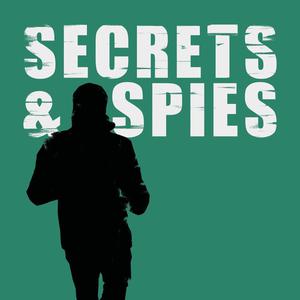 Secrets and Spies
Secrets and Spies
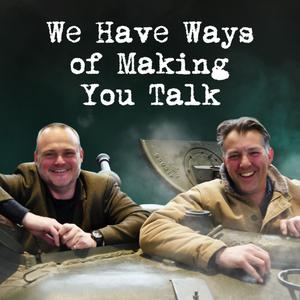 WW2 Pod: We Have Ways of Making You Talk
WW2 Pod: We Have Ways of Making You Talk
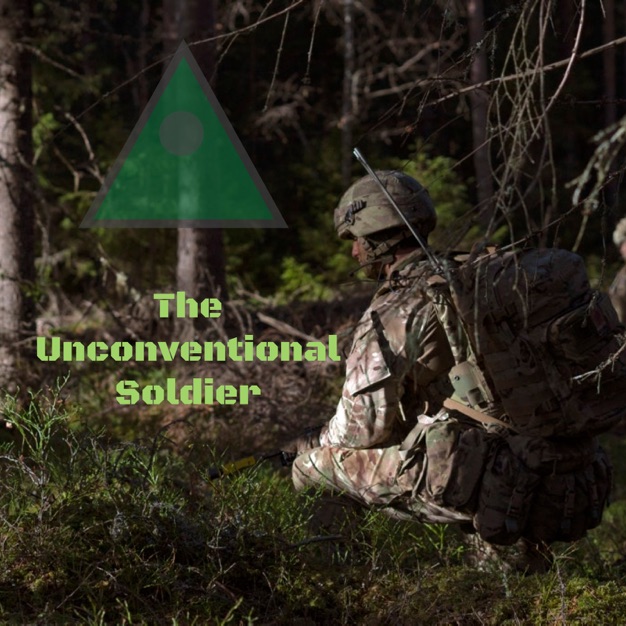 The Unconventional Soldier
The Unconventional Soldier
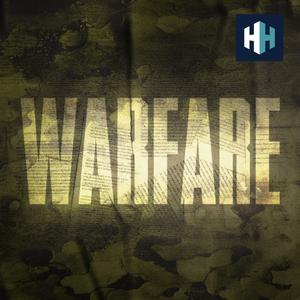 Warfare
Warfare
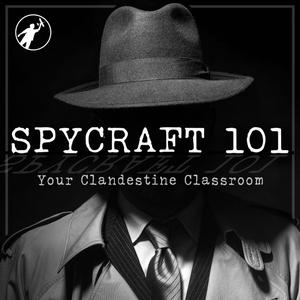 SPYCRAFT 101
SPYCRAFT 101
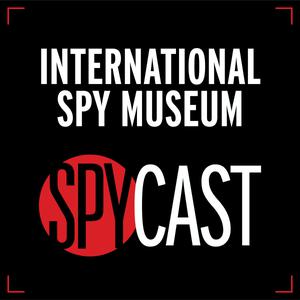 SpyCast
SpyCast